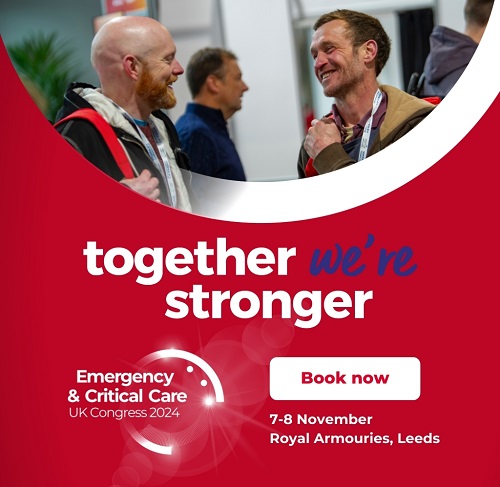Clinical director talks passionately about her role and what vets can expect when they join us
At Vets Now our ethos is simple – to give people and their pets the care and support they deserve, at the time they need it most.
But just as important is our commitment to developing clinical standards. At the forefront of this is Amanda Boag – president of the RCVS, former president of the European College of Veterinary Emergency and Critical Care and Vets Now’s clinical director.
Our content marketing manager Iain Harrison asked Amanda to give us her take on what makes Vets Now a unique employer in the veterinary industry.
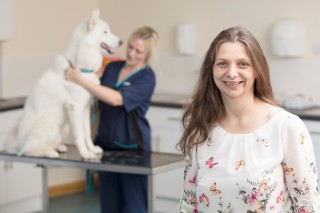
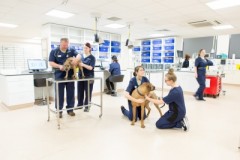
Do you want to join our team?
We’ll support you in pursuing your passion and help you build your career around your lifestyle, not your lifestyle around your career.
Our vacanciesDescribe what Vets Now do to lead the way in clinical excellence?
We have a strong clinical support structure and leadership team, and vets and vet nurses are involved in decision-making at every level of the business from our clinics through to the company board. We understand how important it is for clinical teams to stay at the forefront of what is an extremely fast-paced and constantly evolving field. Our clinical team has developed a unique programme of training and courses to help vets and vet nurses continue their learning and development as they progress. Importantly, we have a strong clinical culture; everyone is encouraged to learn from everything they do, including our mistakes, and to share their learning. Our busy online forums are at the heart of this. There, clinical staff are invited to discuss real cases they’ve worked on and are proud of, and also those they’ve struggled with. This learning culture filters right through the business.
Can you describe the significance of Vets Now’s EBVM work?
Evidence-based research coming from practice is hugely important to improving patient care. In the past, research has tended to be carried out by universities. However, we see over 100,000 emergency cases a year, and we want to use the learnings from those cases to help develop standards of care. At the moment we’re at the beginning of that journey, and we’re looking at simple issues such as the most common reasons animals come in for emergency care. But while simple, this information will provide us with useful insights ensuring our training programmes are right for the cases our clinical teams are most likely to see. We’re also looking at issues like risk factors for caesarean sections. We already know certain breeds need caesareans more than others but are they the same breeds that are presenting for emergency caesareans? This evidence-based research, which is pioneering in a business environment, will increasingly drive what we do.
What makes Vets Now a unique place to work?
In simple terms, we’re the only veterinary organisation that focuses purely on an emergency and referral caseload. But what sets us apart is our focus on our clinical culture. We learn from our mistakes as well as our successes, and we work hard to make sure it’s easy for our people to achieve best practice. For example, we recently held a patient safety culture day – attended by our clinical leaders from across the country – where we focused on all of these objectives.
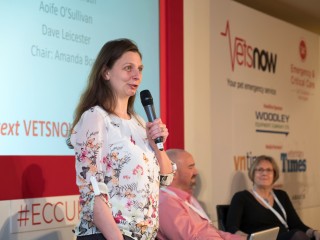
What are Vet Now’s Edge programmes?
We started our flagship Cutting Edge programme in 2010. It came about because we recognised that some vets, particularly those in the early stages of their careers, wanted to work in emergency and critical care but didn’t necessarily have the confidence, skills and training to make the transition. At Vets Now, there is a strong focus on clinical standards, and it’s important people who come to work for us are confident to deliver emergency care. ECC is a relatively new discipline, and the training at undergraduate level is variable. The Cutting Edge induction programme is a combination of knowledge and skills teaching, including practical surgical skills. Most importantly it involves being mentored in our clinics and discussing and reflecting on real cases. This enables everyone to learn from the cases they’ve treated rather than from just textbooks. Any vet interested in ECC should consider this route, and it’s worth bearing in mind it’s a permanent, paid position from the start.
We also have two other vet induction programmes, Refresh Your Edge and AdvantEdge. With Refresh Your Edge, we recognised there was a group of people who were more experienced and already possessed a substantial level of knowledge, but had, perhaps, taken time out of the profession, say, to start a family or travel. Our research suggested that while they wanted to do emergency work, they felt they’d benefit from extra training and support before taking a job in an emergency setting.
AdvantEdge is also aimed at vets with a good level of experience. But it provides a much more accelerated route into a career in ECC as it combines a two-week residential induction, based at our support office in Dunfermline, Scotland, followed by six mentored shifts in-clinic.
Due to the success of these programmes, we launched Nursing Edge, which is designed for nurses who want to come and work in emergency but feel they need that little bit of extra training first. Nursing Edge participants can join us immediately their nurse training is complete.
What can a vet expect in their first year of working for Vets Now?
A warm welcome and a refreshing of their skills and training. To give everyone the best start, we will support them through a comprehensive induction programme both within their clinic and online, so everyone can have confidence in their ability to provide the best care. They can also expect mentoring and support to ensure they’re up to date with the latest ECC skills and knowledge, a great nursing team to work alongside, and an exciting and diverse caseload.
We also actively encourage people to pursue further relevant qualifications such as advanced practitioner status or, if they’re interested, they can join our evidence-based medicine group. In time, if they have ambitions to lead and manage, they will also receive leadership development training to help them make the most of their own and their people’s talents and abilities.
A good example of someone who has developed within our business is Laura Playforth, our head of veterinary standards. She started out as an emergency vet who went on to lead a clinic and then a group of clinics. Laura now works in close collaboration with me overseeing the clinical and professional work across the whole of the out-of-hours clinic network.
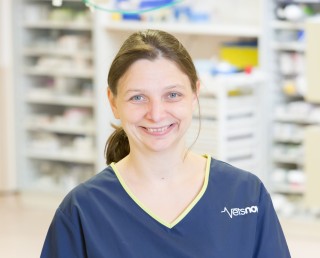
What do you enjoy most as clinical director of Vets Now?
The fact that every day is different. One day I may be in one of our hospitals working with our teams and directly with patients and the next I may be coaching and supporting young vets. The day after that I may be in a strategic meeting making decisions about the long-term future of the business.
What is the biggest challenge facing the business?
Our biggest challenge is ensuring all of our vets and vet nurses are confident in their roles and can balance enjoying their jobs with the other important things in their lives. This isn’t a challenge unique to Vets Now. The veterinary profession is increasingly aware how important it is that vets and vet nurses are in roles that fulfil and challenge them as well as giving them the opportunity to develop themselves within their career. Emergency work is hugely enjoyable, and you get a tremendous high from saving the life of a critically-ill patient, but you need to be able to make decisions rapidly often with incomplete information. That has the potential to be stressful if you don’t have the proper training or environment.
Vets Now recently turned 15. Where do you see it in another 15 years?
Still leading the way in emergency and critical care and still driving clinical standards forwards. We must work hard to ensure our environment – and the systems we have in place – support the highest quality emergency medicine. It’s essential that our positive, no blame culture is maintained regardless of our growth. Alongside that, I am sure there will be increasing integration between our out-of-hours clinics and our 24-hour hospitals.
About Amanda:
Amanda graduated from Cambridge University in 1998. She undertook further clinical training at the Royal Veterinary College and the University of Pennsylvania and is Board certified in both internal medicine and emergency and critical care. Amanda was a lecturer in ECC at the Royal Veterinary College from 2003 to 2008 where she was also co-director of the blood transfusion service and head of the intensive care unit. In September 2008, she took up the post of clinical director at Vets Now. Amanda also holds the position of president of the RCVS.
If you’d like to find out more about the training opportunities at Vets Now please speak to a member of our recruitment team on 01383 807 547.

